| I am still using my 40-year old Atlas and other electric remote control switch machines on my model railroad. |
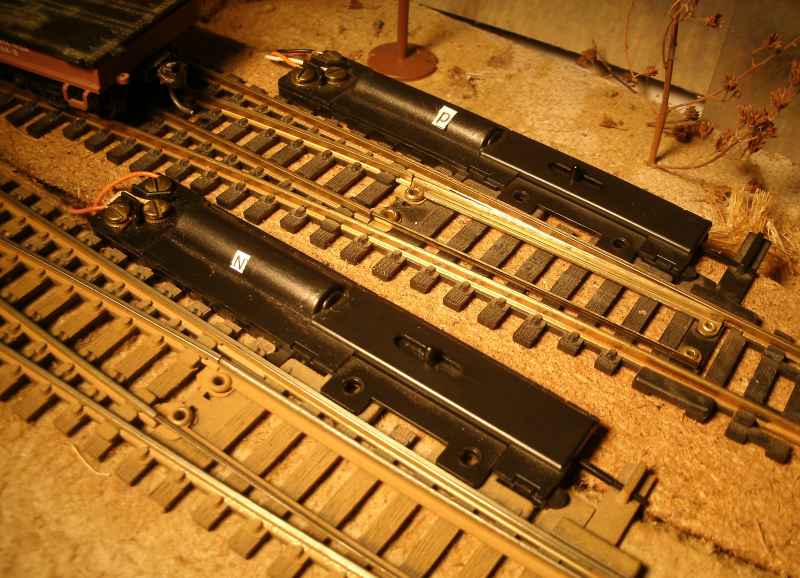
.
|
Slide the control tab to the position desired, and press it in MOMENTARILY to throw the switch. I didn't have problems until I used the leftover controllers inherited from Russ's collection, they might be about 1990 vintage. |
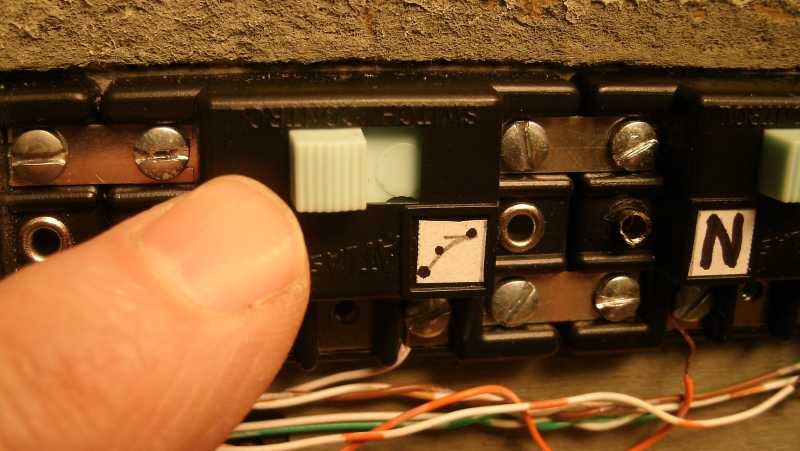
.
|
And I had two switch machines smoking and melting. White smoke was rolling 2 feet high in the sunlight after 10 minutes. Melted and stuck into the train board. |
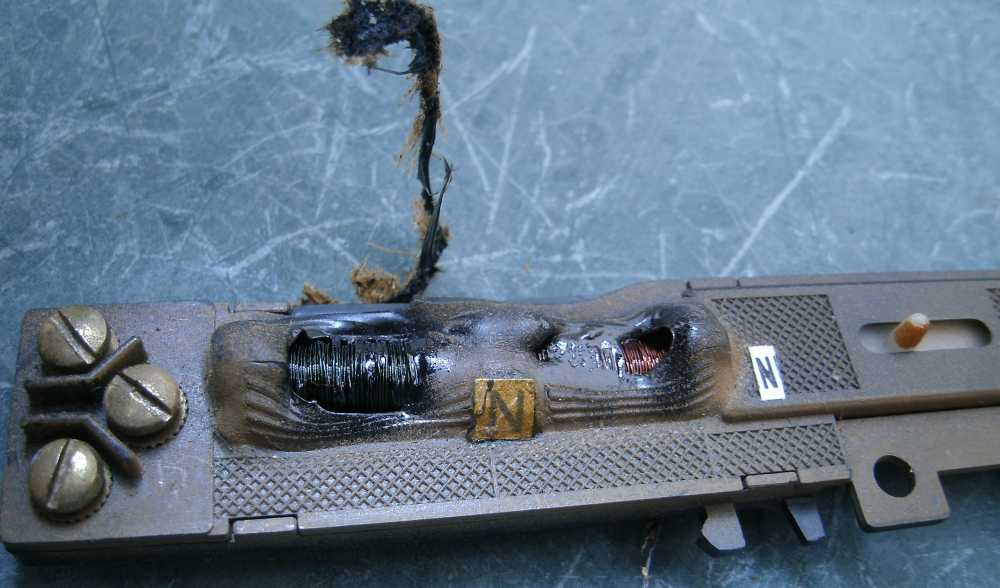 .
.
| Then I looked inside the controller, by drilling out the rivets and prying it apart. |
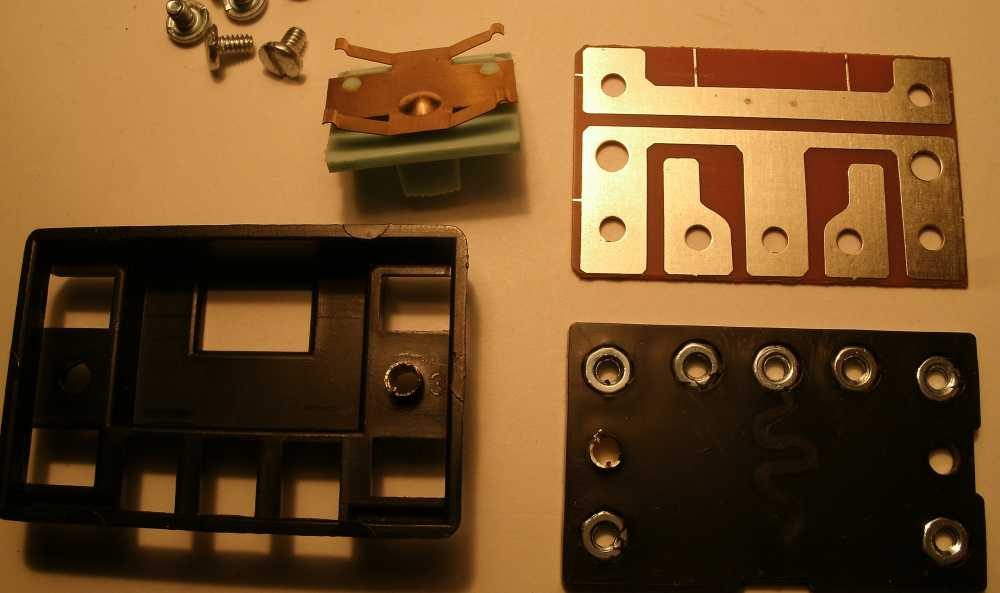
.
There were two narrow strips on the circuit board, shown by my arrows.
Which is a convenient way to throw a switch if they make contact ONLY when the contact tabs slides over them,
and goes past them and is parked on the neutral board at the end of the throw.
But if the contact sits on a strip, then the solenoid is ON all the time. Which is bad.
Then I ground away those strips so they can never be part of the circuit.
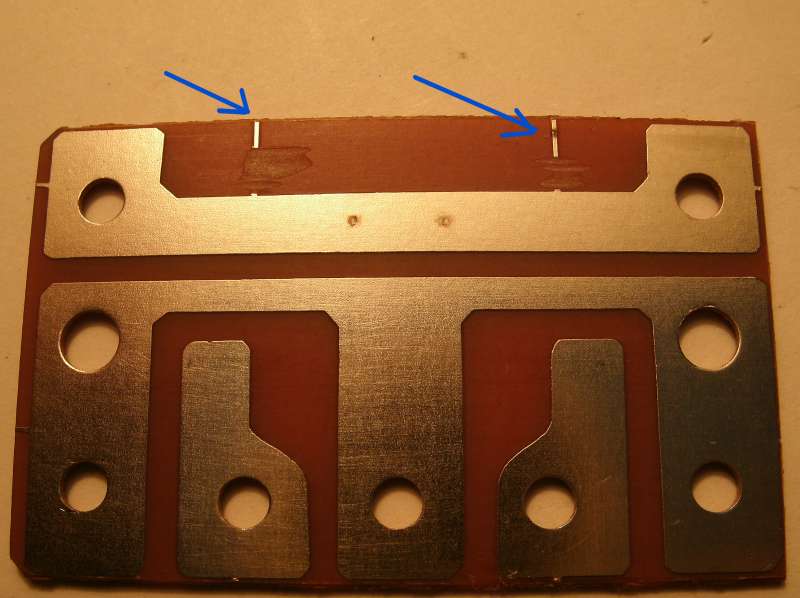
.
|
I thought I found all my poor controllers, my test was to slide the controller tab left and right over and over, repeatedly, and WITHOUT pushing down the button and listen if the solenoid switch machine hummed or snapped to the new position. But that wasn't enough to catch one stiff switch machine, and one morning I found another one melting and smelling of hot plastic.
This problem is hard to solve with fuses, the solenoids use just an amp. I checked the temperature of switch machines with an infrared detector, but that would only be good if I could catch a heating condition within a few minutes of the start of it. After that, the damage is done.
So I made just a detector that shows if any switch machine solenoid is using even a small amount of power when it shouldn't. |
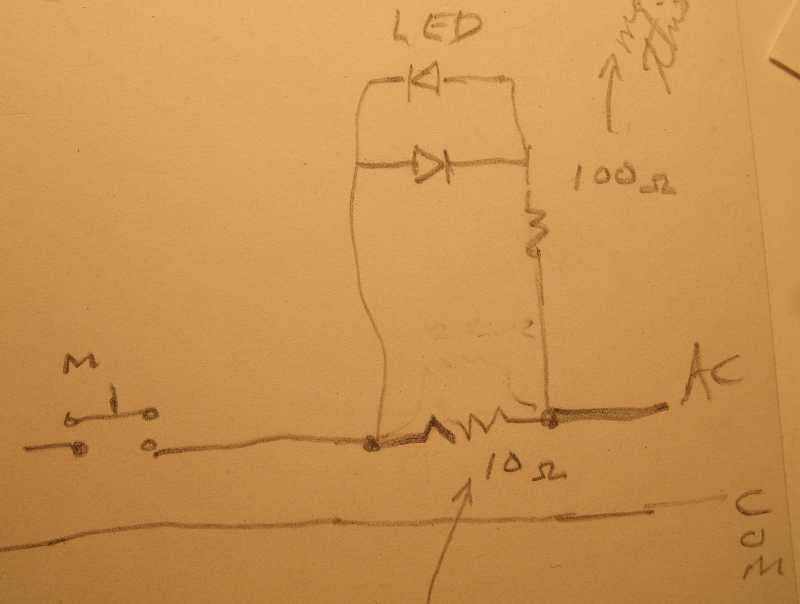
And I put the LED indicator lights where they are easy to see. When I switch a switch, the LED's blink.
If I see that the LED's stay on when I am not using a switch controller, then I instantly know juice is going somewhere when it shouldn't be.
This could be done with light bulb circuit, but LED's are much more sensitive to detect even a small current.
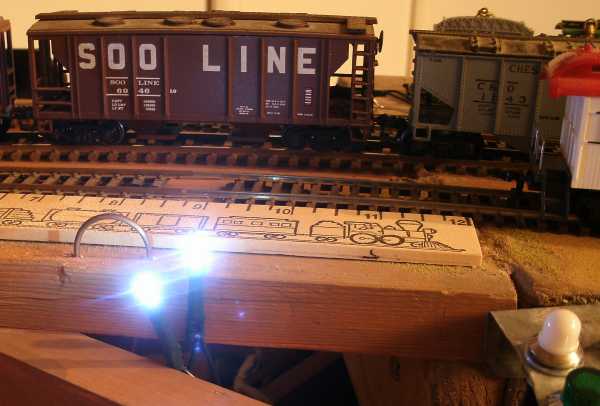
So, this time, I did the slide test of all my controllers (without pushing in) and found another of those bad controllers
that I wouldn't have found any other way until its switch machine solenoid would have melted again.
to My Main Index Page on the TrainWeb site.
This page was filmed in September 2020